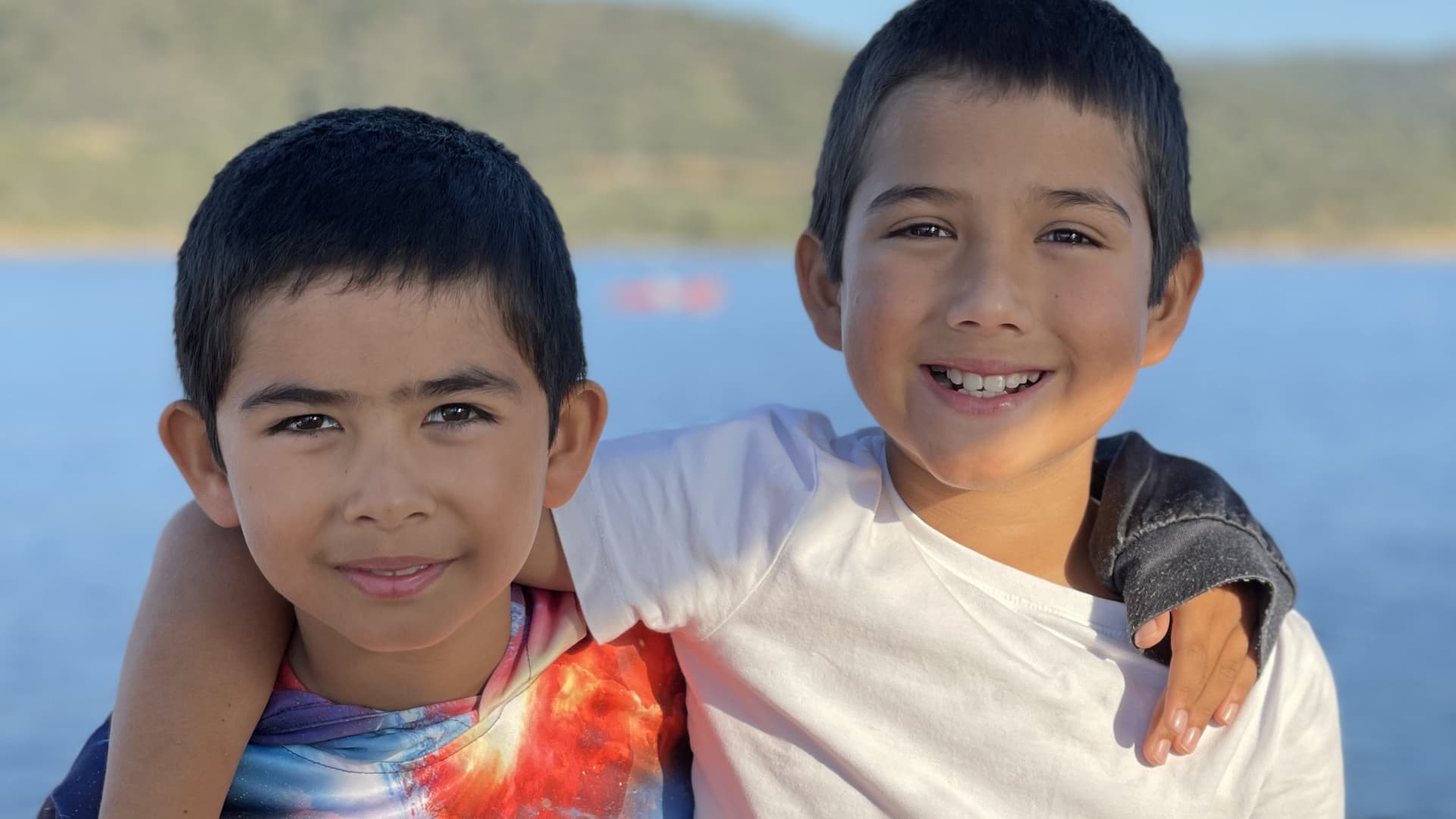Products You May Like
Lisa Terauchi-D’Rozario’s husband had been a captain with Hong Kong airline Cathay Dragon for 14 years when he lost his job in October 2020, she said.
Cathay Pacific cut thousands of jobs and shuttered its regional airline during the pandemic.
The news was crushing, Lisa said. The family decided to leave Hong Kong to return to the Netherlands, where her husband, Jeroen, is from, she said.
But they didn’t stay long.
Lisa’s husband is an adept sailor, and life at sea “seemed to be the best place to be,” especially since the family hoped to avoid Covid, she said. So the couple sold their home in the Netherlands and bought a secondhand monohull boat to “live and travel the world.”
The family first sailed to France, then to Spain and Portugal, before reaching Sardinia, she said. They wintered in Sicily before sailing to Greece, she added.
They sailed from June 2021 to the summer of 2022 — when their travels were cut short by engine failure.
Sailing full time didn’t mean the family’s boat was constantly moving. “Sailing is a matter of short hops,” said Lisa. About 85% of their time was spent on anchor or in a marina, so the family was able to explore many European towns, she said.
Homeschooling on a boat
Lisa’s children were homeschooled — with home, of course, being a 52-foot Swedish-built boat. Lisa liaised with a school in the U.K., which provided monthly assignments and report cards. But she did the teaching, she said.
Unlike traditional classrooms, where children are “vying for the teacher’s attention,” homeschooling let her focus on concepts her children did not understand, Lisa said.
Homeschooling is also less time-consuming than traditional schooling, she said. Schools add filler activities between lessons so students’ attention spans don’t wane, she said. But with homeschooling: “You don’t need that many hours in a day to study … You’re done within two to three hours.”
No longer vegans
Sailing means cutting out rent, electricity and water bills from monthly spending, Lisa said.
While living at sea, her family used a water maker to turn seawater into drinking water, she said. They also used a wind generator and stored solar energy with lithium batteries, she said.
Lisa said they reduced costs further by buying food that was readily available. They stopped being vegan since the small coastal towns they visited often lacked fresh vegetables, she said.
“In order to be sustainable, we had to actually eat locally and shop locally,” she said.
The family also switched to foods that were easy to store, such as dry goods like pasta, rice and sauces, she said.
Challenges of full-time sailing
Lisa worried she would feel lonely while at sea, especially without an internet connection, she said.
But her family learned to embrace the peace and quiet, she said. “You could just sit above deck and look at the water … and before you knew it, eight to 10 hours had passed.”
Exercise was a bigger challenge, she said. The ceiling of the boat was too low to do yoga, and she could swim in the ocean only so many times, she explained. Lifting free weights on the front deck required good weather as the boat had to be still, she added.
In fact, everything on board was subject to the weather, she said. The family checked weather forecasts often but, Lisa said, they still encountered situations they were not prepared for.
On one occasion, the boat experienced “almost three-meter swells” that had not been predicted, said Lisa. Although the family was seasick, the 25-ton boat wasn’t damaged, she said.
“It actually taught us not only to have respect for the ocean … but also mad respect for the boat we’re in,” she said.
Life lessons
“The best part of sailing is just when you can’t see any land anywhere,” said Lisa.
Sunsets, starry night skies and waves lit up with bioluminescence were frequent sights, she said. The family also had a “spectacular” journey through Portugal, exploring places like Porto and the Algarve, she said.
“Sailing really teaches you about life because a lot of the time you’re not in control of how things go,” Lisa said. You have to learn how to handle yourself when things go wrong and refrain from taking unnecessary risks, she said.
Many wait until they’re older and have saved enough money to attempt a similar journey, she said.
But it’s possible to buy a boat “really cheap” and fix it up yourself, she said. Lisa added her husband has done most of the repairs on their boat.
People who fix things themselves learn “the hard way,” said Lisa. “There’s no better way to learn than the hard way, because that’s when it sticks with you for the rest of your life.”
